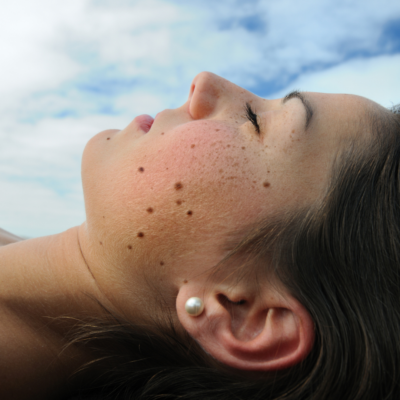
Eczema Management: Expert Insights for a Comfortable Winter
Interview with Annie Liu, MD
Fall is here! If you’ve ever experienced the discomfort of eczema, you’re not alone. We understand this condition can take a toll on your body and emotions. From the relentless itchiness to the self-consciousness often accompanying those red, dry, and flaky patches, eczema can be challenging.
But here’s the silver lining: you don’t have to let eczema control your life, especially when winter’s dry and cold air exacerbates its symptoms. To shed light on eczema management, we recently had the privilege of sitting down with one of California Skin Institute’s dermatological experts, Dr. Annie Liu. In this article, we’ll explore ways to manage and understand eczema better so you can enjoy a more comfortable and confident winter season.
Q: What is Eczema and why does it occur?
Eczema, also known as atopic dermatitis, is more than just an annoying skin condition. It’s a common chronic inflammatory disorder with itchy, red, bumpy and/or flaky skin. Many factors, including your genetics, influence it, the changing weather conditions, stress, and sometimes exposures touching your skin.
Q: Where can you get eczema on your body? Common and uncommon areas.
Common areas where you can get eczema are your elbow crease, behind your knee, neck or face. Though, it can genuinely occur anywhere on your skin, including your scalp!
Q: What are some of the more common symptoms of Eczema?
The physical symptoms of eczema include persistent itching and red, bumpy or flaky skin.
Q: Why does Eczema tend to get worse in the winter?
The winter brings colder and dryer weather, which worsens eczema rashes. Opt for mild, non-soap cleansers, such as the Gentle Soothing Cleanser in CSI’s Sensitive Skincare Kit, that won’t strip your skin of its natural oils. Avoid hot showers, as they can exacerbate dryness. Lukewarm water is a gentler choice. Also, use Phyto Repair Serum to help soothe and calm the skin for immediate relief while it delivers hydration, reduces redness and leaves the skin brighter. If itching or rashes persist or worsen, consult a dermatologist as there may be underlying issues.
Q: Are some people more prone to eczema outbreaks than others? Why?
Some people are more prone to eczema outbreaks, due to several factors, including genetics, stress levels and each person’s unique environmental exposures (e.g. irritating soaps, irritating home fragrances, etc).
Q: How do you diagnose Eczema?
Though it has a range of characteristic appearances, eczema can appear as red, crusty, itchy, flaky patches in oval or circular shaped areas on the skin, so a simple visit to your dermatologist should lead to a diagnosis!
Q: What about Eczema treatments?
In 2023, we are lucky to have so many great treatments that can work well, this includes prescription creams, tablets or injectable medications. Also, consider your clothing choices during the colder months. Dress in layers to stay warm, but make sure your clothing is breathable and made from natural fabrics like cotton. Avoid itchy, scratchy materials that can irritate your skin. On top of that, it’s essential to use the proper skincare to support your skin during eczema flare-ups.
Q: What would you suggest to someone who thinks they have Eczema?
The first step is to confirm your diagnosis since many other skin rashes can look like eczema. A Dermatologist is the best person to confirm this diagnosis. Until you can get this assessment, you can consider using over-the-counter moisturizers twice daily to calm and soothe the skin.



 / 291 Reviews
/ 291 Reviews